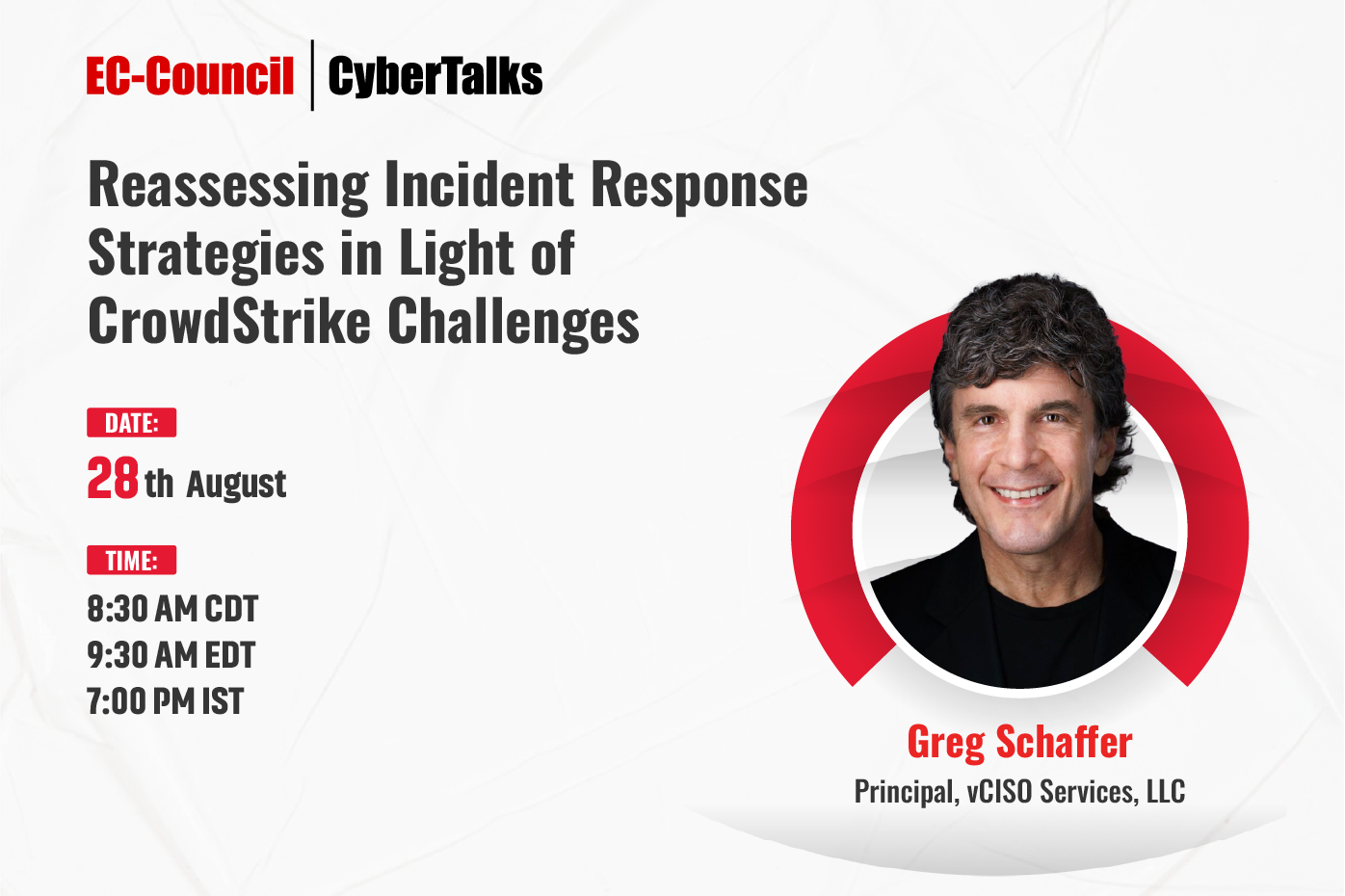According to IBM, 82 percent of data breaches involve information stored in cloud environments (IBM, 2023). Moreover, 80 percent of organizations experienced a major public cloud security incident in 2021, indicating a breakthrough from traditional security approaches. (Snyk, 2022).
Many discussions of cloud security have focused on the “Big Three” public cloud providers: Microsoft Azure, Amazon Web Services (AWS), and Google Cloud Platform (GCP). As of this writing, major companies such as Target, UPS, PayPal, and Goldman Sachs trust GCP with their public cloud resources.
As a result, more IT professionals are looking to bolster their knowledge of platforms such as Google Cloud with a cloud security certification. Below, we will look at the security module in EC-Council’s Google Cloud course, as well as the EC-Council Certified Cloud Security Engineer (C|CSE) program.
Overview of Cloud Security and the Google Cloud Course
“Cloud security” refers to the various practices, tools, methodologies, and best practices to protect cloud data, software applications, and infrastructure. It includes fields such as network security, data encryption, identity and access management (IAM), and more.
Public cloud providers such as Azure, AWS, and GCP typically implement a number of security features to protect customers’ cloud environments. However, public cloud customers are also responsible for securing their own IT assets and resources by adopting measures such as multi-factor authentication, logging and monitoring, vulnerability scanning, and access control. This arrangement, in which the provider and customer share responsibility for cloud security, is known as the shared responsibility model (Alvarenga, 2022).
As such, organizations must be familiar with cloud security issues in their choice of public cloud provider. For businesses that use the Google Cloud Platform, this may come in the form of Google Cloud training that emphasizes cloud security topics and techniques.
EC-Council offers a course called Google Cloud Platform Essentials. This GCP course discusses the fundamentals of Google Cloud for those new to the platform. The modules of EC-Council’s Google Cloud course discuss the various computing services available on the platform, including:
- Compute services
- Storage and database services
- Networking services
- Security services
- Data integration and analytics services
- Management tools and monitoring services
- Other services (AI, IoT, cloud migration)
Exploring the Security Module in the Google Cloud Course
Cloud security engineers leverage their expertise in designing and implementing secure workloads and infrastructure specifically tailored for Google Cloud environments. The security service module in the Google Cloud Platform Essentials course focuses on crucial aspects of securing data and resources within the Google Cloud ecosystem. Covering fundamental principles and practical techniques, the course aims to equip learners with the knowledge and skills necessary to safeguard cloud-based assets effectively.
Students will gain an overview of the key Google Cloud Security services, namely Google Cloud IAM, Google Cloud SSL Policies, Google Cloud Armor, and Google Cloud Security Scanner, and learn how to integrate them into an organization’s cloud application.
This program offers a comprehensive training experience covering all essential security considerations. From access management to communication security, data protection to operational security, and compliance adherence, students will gain a thorough understanding of securing cloud environments. This knowledge will enable them to protect against various cyber threats and ensure regulatory compliance.
Overall, the program equips learners with the knowledge and skills necessary to create a secure cloud environment, mitigate risks, and ensure compliance with industry standards and regulations.
Explore EC-Council’s Cloud Security Certification
EC-Council’s Google Cloud Platform Essentials course is an excellent introduction to using GCP. However, it is usually wise for IT professionals to have expertise in multiple cloud platforms, such as AWS and Azure, in addition to Google Cloud. This is because most businesses adopt a “multi-cloud” approach, using different services and products from more than one cloud provider. 98 percent of companies using the public cloud have adopted a multi-cloud approach (Oracle, 2023). Multi-cloud strategies have several benefits. They make cloud environments more resilient, give customers more flexibility to choose the right cloud services, and can be more cost-effective than sticking with a single provider. For this reason, it is a good idea for IT professionals to select a vendor-specific cloud security certification. Specializing in a particular cloud provider, such as Google Cloud Platform, can help you stand out from the crowd when looking for cloud security jobs.
However, it is equally important to obtain a rock-solid understanding of cloud security essentials that can be applied to multi-cloud environments. Vendor-neutral cloud security courses are highly valued in the industry because they testify to students’ comprehensive understanding of cloud security that can be applied to a variety of IT environments. EC-Council’s Certified Cloud Security Engineer (C|CSE) program is the only certification that delivers a mix of vendor-neutral and vendor-specific cloud security concepts. Students learn both cloud security fundamentals and specialized topics that pertain to individual cloud providers, including AWS, Azure, and GCP. C|CSE focuses on the fundamental practices, frameworks, technologies, and principles necessary to succeed in multi-cloud environments, validating a student’s expertise in general cloud security concepts and best practices. In addition, it includes more than 80 hands-on labs that provide the practical experience students need to scale up their skills in cloud security.
C|CSE students learn a variety of skills throughout 11 modules that prepare them for real-world scenarios:
- Introduction to cloud security
- Cloud platform and infrastructure security
- Cloud application security
- Cloud data security
- Cloud operation security
- Cloud penetration testing
- Cloud incident detection and response
- Cloud digital forensics investigation
- Cloud disaster recovery and business continuity
- Cloud governance, risk management, and compliance
- Cloud standards, policies, and legal issues
- Cloud security in private, hybrid, and multi-tenant cloud models
The C|CSE course makes you eligible for more than 20 job roles and responsibilities of cloud security professionals, such as:
- Cloud Security Engineer
- Cloud Security and Compliance Specialist
- Cloud Security Consultant
- Cloud Security Operations Lead
- Cyber Cloud Security Manager
- Cloud Security Practice Manager
- Cloud Security Architect
- Cloud Security Engineer – DevSecOps
- Cloud Security Manager
- DevSecOps Cloud Security Architect
- API Cloud Security Engineer
- Cloud Security/OPS
- Cloud Security Technical Lead
- Cloud Security SME
- Cloud Security Administrator
- Cloud Security Project Manager
- Cloud Security Analyst
- Cloud Security/Operations Engineer
- Cloud Security Specialist
- Cloud Security/Infosec/SecOps Engineer
- IT Delivery Manager – Cloud Security Engineer
- Cloud Security/Infosec/SecOps Engineer
After five days of intensive training and passing a four-hour exam, C|CSE students are job-ready and have the skills to address real-world cloud security issues.
References
IBM. (2023). Cost of a Data Breach Report 2023. https://www.ibm.com/reports/data-breach Snyk. (2022). The State of Cloud Security Report 2022. https://go.snyk.io/rs/677-THP-415/images/cloudsecurity2022-compressed.pdf
Alvarenga, G. (2022, November 14). SHARED RESPONSIBILITY MODEL. CrowdStrike. https://www.crowdstrike.com/cybersecurity-101/cloud-security/shared-responsibility-model/
Google Cloud. Professional Cloud Security Engineer. https://cloud.google.com/learn/certification/guides/cloud-security-engineer
Oracle. (2023, February 9). 98% of Enterprises Using Public Cloud Have Adopted a Multicloud Infrastructure Provider Strategy. https://www.oracle.com/lu/news/announcement/98-percent-enterprises-adopted-multicloud-strategy-2023-02-09/
About the Author
David Tidmarsh is a programmer and writer. He’s worked as a software developer at MIT, has a B.A. in history from Yale, and is currently a graduate student in computer science at UT Austin.











